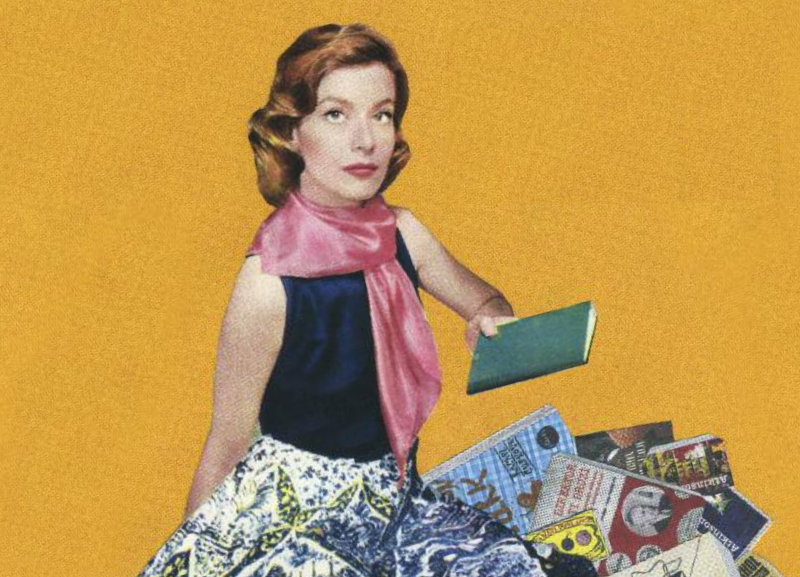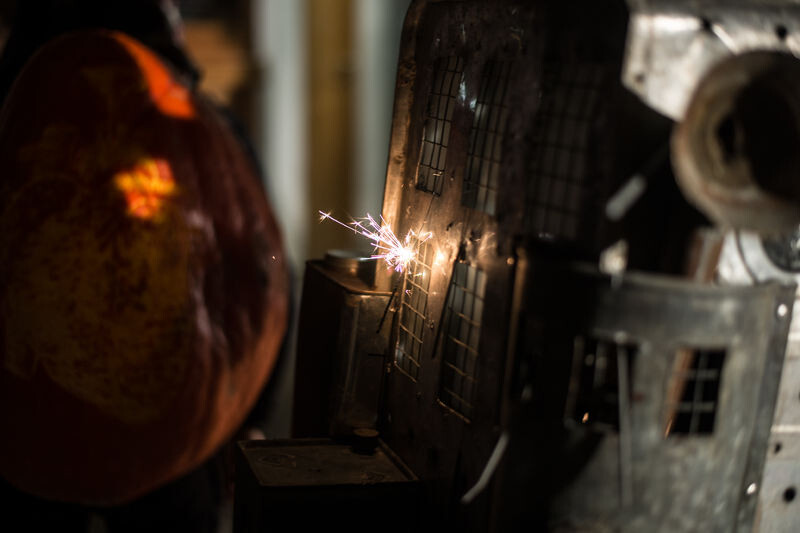Annual Survey: Film & Book / part 2
This year again, the last issue of dok.revue features a survey in which we asked filmmakers, producers, theorists, historians, pedagogues and other figures of the Czech and Slovak documentary world to tell us what documentary films and books influenced them the most in the previous year. The aim is not to produce another “top ten chart”, but to capture the trains of thought and contexts that shape contemporary documentary production and its perception not only by the professional public, as is also indicated by the personal tone of the questions.
1/ Which documentary film influenced you the most in the previous year, and why?
2/ Which book influenced you the most in the previous year, and why?
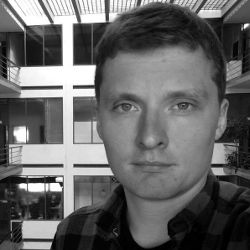 Tomáš Hrubý, producer
Tomáš Hrubý, producer
1/ A series of investigative reportages Prague vs Money by Janek Rubeš, who as a novice journalist managed to have a greater influence on the actual state of affairs than most of our established journalists and documentarians together. Janek again paves the way for completely new formats and techniques of working with video and the Internet. With a limited crew and practically zero budget, he managed to show that a smart guy with a camera is able to push a city forward more efficiently than communal elections.
2/ The Sixth Extinction: An Unnatural History by Elizabeth Kolbert, the winner of this year’s Pulitzer Prize, that draws a parallel between five great historical mass extinctions and the current disappearance of animal species due to anthropogenic activity. An absolutely dark publication that depicts the extent and primarily the consequences of the current mass reduction of biodiversity which can consequently put humanity itself in danger, is counterbalanced by a single bright moment – scientists believe that the future belongs to rats that, as one of the few species, thrive in co-habitation with humans.
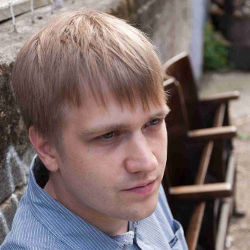 Martin Kohout, documentary filmmaker
Martin Kohout, documentary filmmaker
1/ Is Everyone Right? Karel Floss and the Others (2015) by Helena Všetečková. A deep probe into current social trends and moods in the context of global capitalism, our history, Christian doctrine, art and philosophy. Featuring A. Badiou, N. Chomsky, S. Žižek, V. Klaus, M. Knížák, etc. A colourful mosaic of scenes and protagonists which does not only offer a cunning play on meanings, all of which are gradually eliminated, but a structure, in which some reveal what others hold back. For me, the film represents an effort to overcome postmodernism, to discover the truth, and not to emphasise its relativity.
2/ The Munich Complex by Jan Tesař. A book about our victory in World War II thanks to an (enforced) betrayal without the need to even fight.
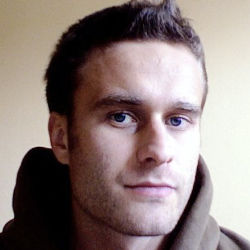 Richard Komárek, documentary filmmaker
Richard Komárek, documentary filmmaker
1/ When me and my colleagues went to IDFA, we accidently wandered into a magical cinema, Pathé Tuschinski, which was showing Thru You Princess by Ido Haar (2015). Two stories – of lonely nurse Samantha from New Orleans writing songs (with approx. 16 views on YouTube) to cope with her loneliness, and of Israeli composer Kutiman, who lives in Tel Aviv where he remixes songs using other music videos with nearly a million views – intersect when a part of Samantha’s song is featured in one of Kutiman’s new remixes. Finally they meet, get famous and live merrily ever after. It could perhaps be due to our momentous frame of mind, great music, Kutiman’s genius idea, juxtaposition of two completely different worlds, a new perspective of shared videos, I’m not sure, but I was emotionally overextended when leaving the cinema.
2/ Pinocchio, adapted by Giada Francia, with illustrations by Manuela Adreani. When I was reading the book to my kids before putting them to bed, two of my three kids were actually listening to me, which made me feel that I might not doing so bad as a father.
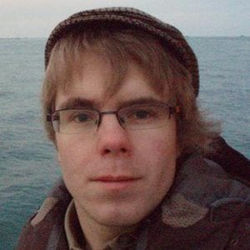 Jaroslav Kratochvíl, documentary filmmaker
Jaroslav Kratochvíl, documentary filmmaker
1/ A retrospective of Artavazd Peleshyan at FAMU and in the Ponrepo Cinema in the presence of the author, and a following discussion about his films – a cinematic celebration of the power of the image and a distance montage as a method of exploring reality. I believe that art plays the same role as science, i.e. it views the world from a different angle than as we know it, and draws conclusions that help us better understand the world. Peleshyan is an inventor and methodologist of a unique connection of the rational, aesthetical and emotional aspects that co-exist in his film poems in a Trinitarian unity.
2/ Postwar: A History of Europe Since 1945, Tony Judt, published in 2007. A coherent and multi-layered account of our history that does not limit itself to the factual context of the events, but also offers an interpretation, showing the direction in which Europe could or should be heading.
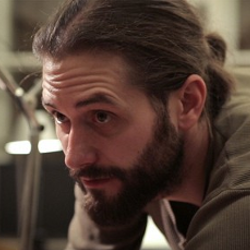 Tomáš Kratochvíl, documentary filmmaker
Tomáš Kratochvíl, documentary filmmaker
1/ Sinner in Mecca, Parvez Sharma, 2015. A homosexual Muslim ventures on a pilgrimage to Saudi Arabia and makes a film about it, risking his life for both of these reasons. This documentary is important in that it comments on Saudi Arabia’s state ideology that promotes a hateful form of Islam. Everyone knows it but nobody does anything about it, because the Saudi have a lot of money and are US allies.
2/ Rory Stewart: The Places in Between. In 2002, the author walked across the whole of Afghanistan on foot. He visited villages whose inhabitants haven’t left their home for many years for fear of being killed by their neighbours. He has seen Middle Ages, religious fanatics as well as hospitable people. In his book he says: “When I saw them wiping their ass with stones, I realised that these people can never be defeated.”
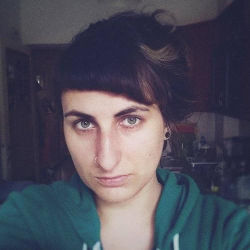 Martina Malinová, documentary filmmaker
Martina Malinová, documentary filmmaker
1/ For example, Sinner in Mecca is a great movie. However, a film event that drew much more of my attention was the Czech Joy competition section at this year’s Jihlava IDFF. This year’s strong edition featuring films such as Czechs Against Czechs, Buttons of Consciousness and Afloat was criticised by jury members Martin Dušek and Milan Knížák. The embarrassing moment when your friends, filmmakers, are told by a juror who himself has received three awards in this category, that they are amateurs and that no award will be granted. I’m grateful for all those imperfect works, so many diverse approaches, topics and ideas.
2/ My Book Vinnetou (2015) by comic artist ToyBox. When I finished the book, I ran out of the Na Františku hospital, where I was recovering, and continued along the bank of the Vltava River to transfer the catharsis from my mind to my body. Thank you! And let me add two more recommendations: Amanda Palmer’s Art of Asking (2014) and Be Here Now (Ram Dass, 2008) from the “spiritual” section.
The answers have been abbreviated by the editor. For their full and detailed version go to www.dokrevue.cz

